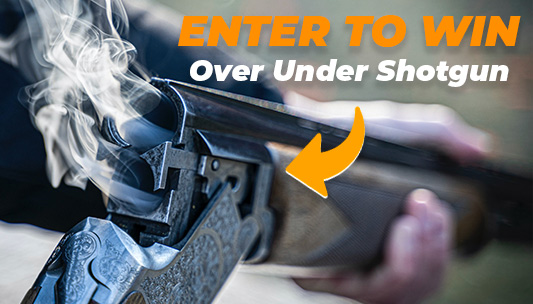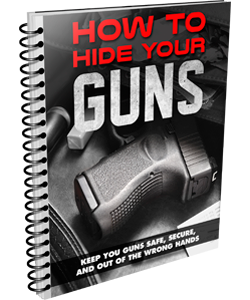Shotguns are versatile firearms known for their wide range of applications, from hunting and sport shooting to military and law enforcement use. Among the various gauges available, the 4 gauge shotgun stands out for its exceptional power and capabilities.
In this article, we will delve into the world of 4 gauge shotguns, exploring their life, death, best options, and how to handle them responsibly.
History
The gauge system used to measure shotgun bore sizes was developed in the late 19th century. The gauge number is determined by the number of lead balls with the same diameter as the bore that can be made from one pound of lead.
For example, a 12 gauge shotgun has a bore diameter that can make 12 lead balls from one pound of lead.
The 4 gauge shotgun is one of the largest shotgun gauges available. It has a bore diameter of 1.052 inches, which is significantly larger than a 12 gauge shotgun (0.729 inches). The 4 gauge shotgun was developed in the late 19th century for use in hunting large game, such as elephants and rhinoceroses. However, it has since fallen out of favor for hunting due to its excessive power and limited range.
Uses of 4 Gauge Shotguns
Today, the 4 gauge shotgun is primarily used for two purposes: industrial and military. In industrial settings, 4 gauge shotguns are used for tasks such as removing obstructions from industrial pipes and cleaning large tanks. The shotgun's power and wide spread make it an effective tool for these types of tasks.
In military settings, the 4 gauge shotgun is used for breaching doors and other barriers. The shotgun's power allows it to easily blast through doors and walls, making it an effective tool for military and law enforcement personnel.
The Death of 4 Gauge Shotguns
Decline of 4 Gauge Shotguns in Hunting
As previously mentioned, 4 gauge shotguns were once used for hunting large game. However, they have since fallen out of favor for this purpose due to their excessive power and limited range. Today, smaller gauge shotguns, such as 12 gauge and 20 gauge, are more commonly used for hunting.
Limitations of 4 Gauge Shotguns in Sport Shooting
4 gauge shotguns were once used for sport shooting, but have been banned from most sporting events due to their excessive power. They are also not practical for most types of sport shooting, as their power makes them difficult to handle and their range is limited.
Rarity and High Cost of 4 Gauge Shotguns
Due to their limited demand, 4 gauge shotguns are rare and expensive. They are typically custom-made or made in small batches by specialty manufacturers. This makes them cost-prohibitive for most people, and they are primarily owned by collectors, industrial companies, and military organizations.
Life of 4 Gauge Shotguns
The life of a gauge shotgun can vary depending on several factors, including the quality of the firearm, the materials used in its construction, and how well it is maintained. Generally, a well-made shotgun can last a lifetime if properly cared for.
The barrel of a shotgun is a critical component that undergoes significant stress with each shot fired. Over time, the barrel may experience wear from the hot gases and projectiles passing through it. However, modern shotguns are typically built to withstand many thousands of rounds before any noticeable degradation occurs.
Regular maintenance is essential to prolong the life of a shotgun. Cleaning the barrel after each use helps remove fouling and prevents corrosion. Lubricating moving parts and storing the shotgun in a dry environment further protect it from rust and damage.
Other factors that can affect the lifespan of a shotgun include the type of ammunition used and the frequency of use. Using high-quality, factory-produced ammunition and avoiding excessive use of high-pressure loads can help minimize wear on the firearm.
Best Options for 4 Gauge Shotguns
There are several options available for those interested in purchasing a 4 gauge shotgun. However, due to the limited demand for these firearms, they are not widely available and can be expensive.
James Purdey & Sons
James Purdey & Sons is a prestigious and historic British gunmaker founded in 1814. Their shotguns are renowned for their exceptional craftsmanship and attention to detail. Each shotgun is meticulously handcrafted by skilled artisans using the finest materials available.

The stocks are made from carefully selected walnut, while the barrels are crafted with precision and expertise. James Purdey & Sons shotguns are known for their elegance, reliability, and superior performance in the field. They are highly sought after by shooting enthusiasts and collectors alike, representing a symbol of luxury and heritage.
Holland & Holland
Holland & Holland is an iconic British gunmaker established in 1835. They have earned a reputation for producing world-class shotguns and rifles. Holland & Holland shotguns are crafted with a blend of traditional techniques and modern innovations, resulting in firearms that are both visually stunning and highly functional.

The brand is particularly famous for their patented “Royal” sidelock design, which ensures smooth operation and reliability. The shotguns feature exquisite engraving and fine finishes, making them prized possessions for collectors. Holland & Holland shotguns are highly regarded for their precision, balance, and exceptional performance in the field, embodying the legacy of British gunmaking excellence.
Handling 4 Gauge Shotguns Safely
Handling a 4 gauge shotgun requires a high level of skill and experience. Due to the shotgun's power and recoil, it can be dangerous if not handled properly. Here are some tips for handling a 4 gauge shotgun safely:
- Always point the shotgun in a safe direction. Never point a loaded shotgun at anyone, even if you believe it is unloaded.
- Keep your finger off the trigger until you are ready to shoot. This will help prevent accidental discharges.
- Wear appropriate eye and ear protection. The recoil from a 4 gauge shotgun can be intense, and it is important to protect your eyes and ears from any debris or loud noise.
- Use the proper ammunition. Only use ammunition that is specifically designed for your shotgun, and never use ammunition that is damaged or defective.
- Keep the shotgun unloaded when not in use. Always ensure that the shotgun is unloaded and the safety is engaged before storing it.
The 4 gauge shotgun is a powerful firearm that has a long and interesting history. While it is no longer commonly used for hunting, it remains a useful tool in industrial and military settings.
If you are interested in purchasing a 4 gauge shotgun, be sure to do your research and handle it safely and responsibly. Remember that with great power comes great responsibility, and always prioritize safety when handling firearms.
Got more ideas about shotguns? Share your thoughts with us in the comments section below!

Read More
- Top 9 Best Glocks for Women
- Top 5 9mm Carbines Under $500
- Pink Handgun | Top 9 Pink Handguns for You
- 15 Best 9mm Handgun Concealed Carry Bags with Laser
- Top 12 Trench Shotguns: Best Picks for Powerful Defense
- Finding Your Norinco SKS Production Date
- Taurus Judge Ammo Types: Top 9 Best Types of Ammo Used in Taurus Judge
Follow us on Facebook, Instagram, Twitter, and Pinterest!
Disclaimer: All content on this site is for informational purposes only. Please read our full disclaimer here.




